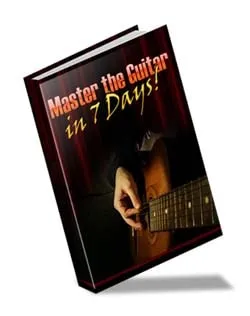Bluegrass guitarists often prefer an “old-school” style, but many like the music for its loud and bright side. Either way, none of those characteristics can be brought out without a trusty set of strings with the right amount of thickness and feel to them.
Unfortunately, it is much harder to settle on one pack, and even after playing for years, guitarists continue to find the sound they like best. With the help of a few promising reviews and features that stood out, we have picked out a few favorites from the vast world of acoustic strings.
Our Top Picks
| Stringjoy NB1254 Natural Strings | 4.5 x 1 x 4.5 inches | 0.12-0.54 Gauge, Hand-made, Balanced Tension, and Tuning Stability, Smooth Feel, Corrosion Resistant, Uncoated, Clear Mids, Phosphor/Bronze Winding | |
| Elixir NANOWEB 16052 Acoustic Guitar Strings | 0.6 x 4.1 x 4.7 inches | Nano-web Coating, Phosphor/Bronze Wrap Wire, Light Gauge, Rich and Full Tone, Anti-Rust Plated, Smooth and Sleek Feel | |
| D’Addario EJ14 Bronze Strings | 4.3 x 4.1 x 0.5 inches | Hex Core, Light Top/Medium Gauge, Color-Coded Ball Ends, Bright and Deep Tone, Natural Feel, and Uncoated Strings | |
| John Pearse 700M Acoustic Guitar Strings | 4.2 x 4.2 x 0.4 inches | Phosphor Bronze Wound, Medium Gauge at 0.13, Balanced Tone, Non-coated, Great Finger-Picking Response, Ball End and Hex Core |
Stringjoy NB1254 Natural Strings
For traditionalists seeking the authentic warm, woody tone of a handmade string, the Stringjoy Natural Phosphor/Bronze strings are a dream come true. Other than the well-sought after tone, they take away worries of uneven tension, tuning instabilities, and string squeaks by mathematically optimizing the winding of each set.
Furthermore, corrosion and rust often lead to tones dying out sooner, rendering the strings useless, but longevity is also guaranteed with this core choice.
They last much longer than other uncoated strings in terms of breakage, and a backup factory-direct subscription program will also ensure that you always have a fresh set on hand.
Since they are not mass-produced, the string stretch is left up to the player according to their preferences. However, if you are looking for a budget-friendly option, Stringjoy might not be for you. Some consumers have gone as far as to suggest that the company cut down on packaging expenses to make them more affordable.
Pros
- Balanced tone and tuning stability, so even playing along the neck
- Strings are not pre-stretched, meaning consumers get to make that choice according to their preferences
- Perform well even after a month or so of constant playing
- Offer great resonance, intonation, and projection for leads
Cons
- A bit on the high end than other strings
Elixir NANOWEB 16052 Acoustic Guitar Strings
With a light gauge range of 0.12-0.53, these trusted Elixir Acoustic Strings come with an ultra-thin Nanoweb coating which is not only durable but also easy on the fingers, reducing squeak.
Guitars going out of tune can be very discouraging for aspiring musicians, but with these Elixirs tuning stability can be promised after multiple tests and surveys. The unique, anti-rust plating appeals to regular players wanting to invest in long-lasting strings without facing tone-deadening corrosion.
It also allows them to withstand fluctuating temperatures and high humidity without compromising your performance. Moreover, the wound strings, winding gaps, and critical zone are protected from all sorts of contaminants like dirt, sweat, and dust, which could harm their rich and full tone.
However, some users claim that the coating can get a bit slippery, especially if not cleaned regularly.
Pros
- Nano-web coating does not flake or rust
- Stay in tune much longer, reducing interruptions for endless set-ups
- Can withstand dirt, humidity, sweat and offer guaranteed tone consistency during long hours of playing
- Enhanced sounds with less interrupting finger squeaks
- Better playability than other coated strings due to the ultra-thin layer
Cons
- The ultra-thin coat may get too slippery and harder to play if not maintained regularly.
D’Addario EJ14 Bronze Strings

The hybrid gauge offers bottom strings at a medium for greater resonance and light gauge top strings, suitable for single-note bending. This duality brings out bright sounds and intonations for stage performances along with a deep, projecting tone that appeals to traditionalists.
This is a definite choice for a number of bluegrass players, but they play well over several genres. Furthermore, the manufacturer offers corrosion-free packaging to solve all worries regarding receiving damaged strings.
Like most uncoated strings, these strings have a standard lifespan of 6-7 weeks. For a more durable and stable-pitched alternative, D’Addario offers these coated Phosphor Bronze strings with NY Steel.
Pros
- Affordable strings that perform well
- Tone lasts longer and does not require constant tuning and set-up
- Custom, hybrid gauge leaves room for both comfortable playability and higher volume
- Natural feel allowing single-note bending
- Shipped in protected packaging to ensure a fresh set every time
Cons
- More breakage than other premium options
John Pearse 700M Acoustic Guitar Strings
Coming from a small company quite well-known among bluegrass and folk guitarists, the John Pearse 700M strings offer the most authentic and balanced tone.
Players interested in the pop and folk genre would be particularly impressed by their attention-grabbing, bright sounds, and versatility in leads and rhythms. After a few sessions, the brightness settles down into a mellow, woody, and warm sound.
Many consumers also swear by these for their easy string-bending and strumming abilities. As a result of the gauge range of 0.13-0.56, the thickness may not be for players with sensitive fingers, but that is what makes the finger-picking response exceptional.
Unfortunately, due to the lack of coating, the durability is a bit disappointing. They require very careful tuning and do not last longer than 6-7 weeks, which discourages players who cannot afford string changes that often.
Pros
- Authentic bluegrass sounds with a balanced tone
- Can withstand constant environmental changes and varying temperatures
- Easy to play rhythms and string-bends on
- Often deep lows, punchy middles, and clear, singing highs
- Adaptable to most acoustic guitars
Cons
- Require careful tuning, often a step-down than the usual, to avoid breaking the strings
- May be rough on the fingers
Buying Guide for Bluegrass Guitar Strings
If you’ve tried too many brands and still haven’t found the one for you, this guide will give you a fresh set of eyes on what to look for in an acoustic string set:
String Gauges
Gauges range from light to heavy and while one should always be open to experimenting, it is best to stick to a gauge once you’ve found your sound. A gauge helps determine the evenness of the tone and the string’s fingerpicking ability. Medium gauge or below are preferred for bluegrass music but the final word is still up to the stress a guitar’s neck can bear along with each individual’s preferences.
Core Metal Choices
If you’re in a bluegrass circle, 80/20 Bronze and Phosphor Bronze will not be unheard of. Since they are both popular choices, the decision lands on your budget and your tone preference. The 80/20 Bronze is an expensive choice because while it produces a bright tone with great articulation, the bronze-zinc alloy does not hold up for long if not cleaned regularly.
On the other hand, the Phosphor Bronze has a dull tone but one that does not restrict you to a genre and is corrosion-resistant.
Coated or Uncoated
Every guitarist wants to elongate the brightness of the sound of new strings and not have to give up the intonation of your instrument to rust, oils, and dirt. Fortunately, coated strings appeal to all those willing to pay a higher premium in exchange for reduced squeaks and acoustic recording privileges.
Uncoated strings still uphold their integrity at a lower price but might be rough for fingerpicking and lose their sound appeal quicker.
Follow the Crowd
When it comes to guitar strings, there is always a lot of testing out with multiple sizes, brands, and thicknesses. Thus, it is best to settle on a gauge size and core choice and pick them out in popular brands with good reviews.
Always go by what the consumer ratings say because they can also warn you about frauds, inauthentic products, fake advertisements, manufacturing flaws, etc. Furthermore, saving a few bucks won’t help if the strings don’t last longer than a week or cannot withstand a few hours of playing.
Conclusion
Navigating the world of bluegrass guitars is much easier when you find the strings for you, so once you’ve got your hands on the right one, it is suggested that you buy in bulk. Stocking up saves you money as well as ensures that you do not have to worry about having back-ups in case of breakage or back-to-back sessions.
Lastly, you can extend your strings’ lifespan by careful tuning, regular maintenance and always picking at them with clean hands.







 Sign up to receive a free ebook: Master The Guitar in 7 days! (available for a limited period)
Sign up to receive a free ebook: Master The Guitar in 7 days! (available for a limited period)